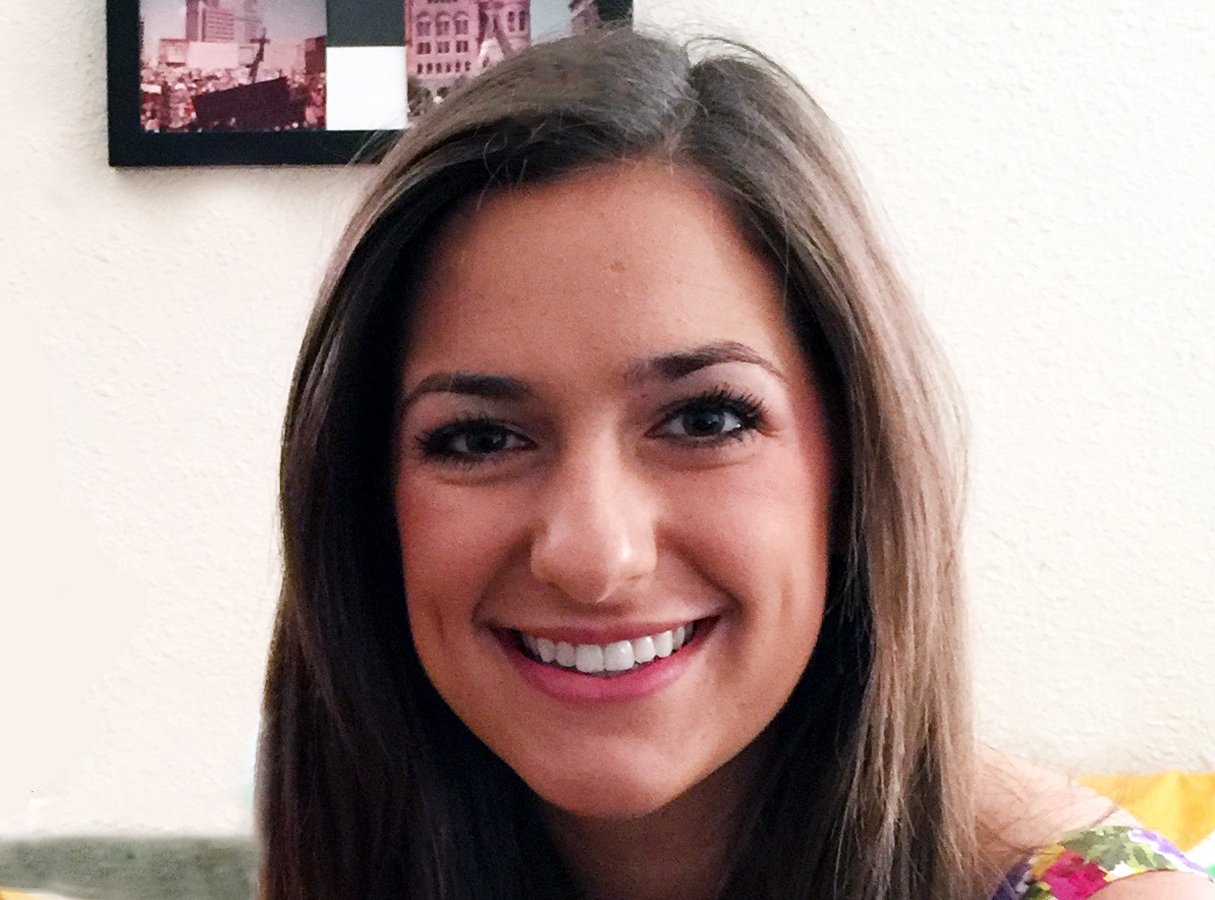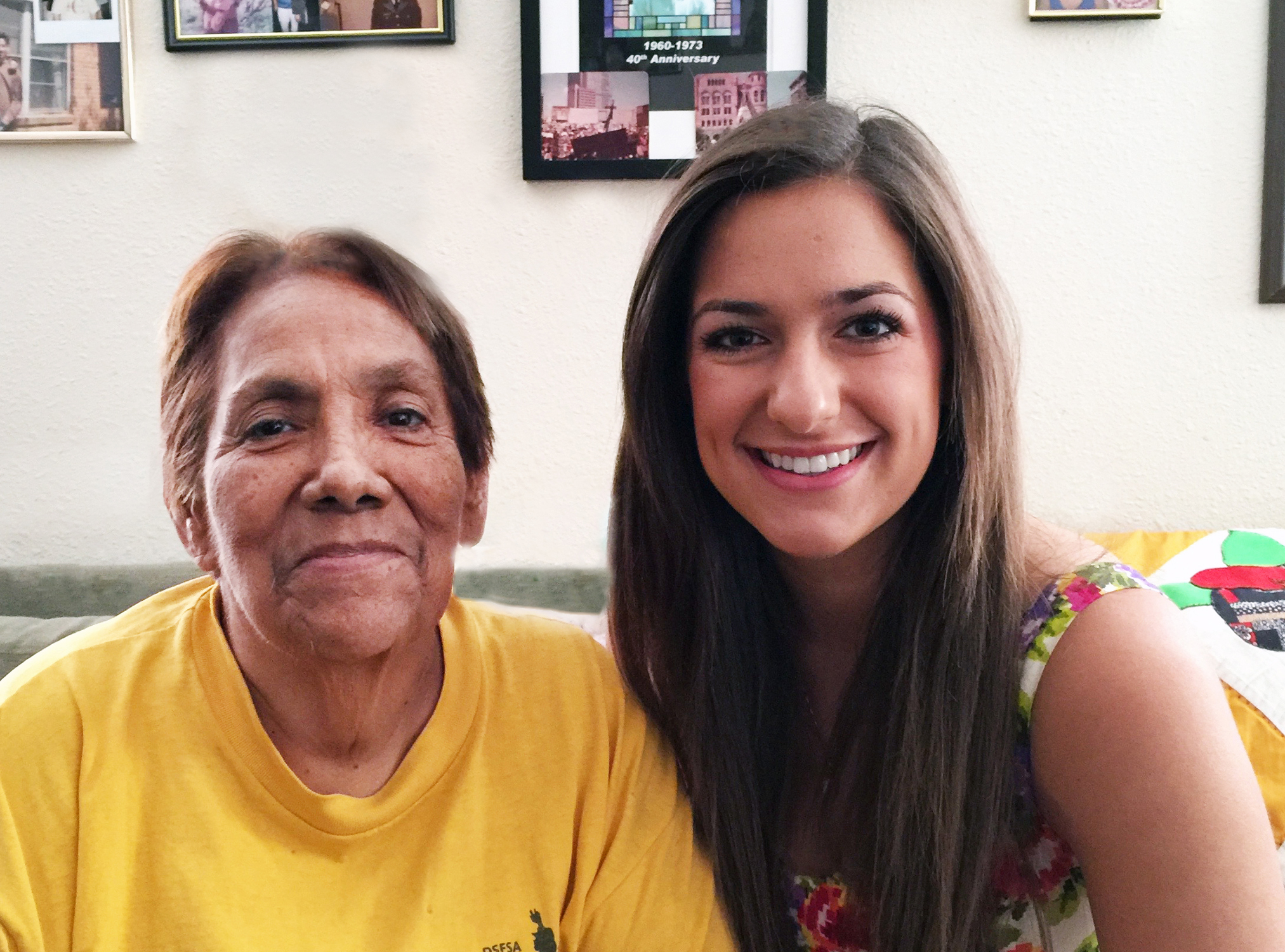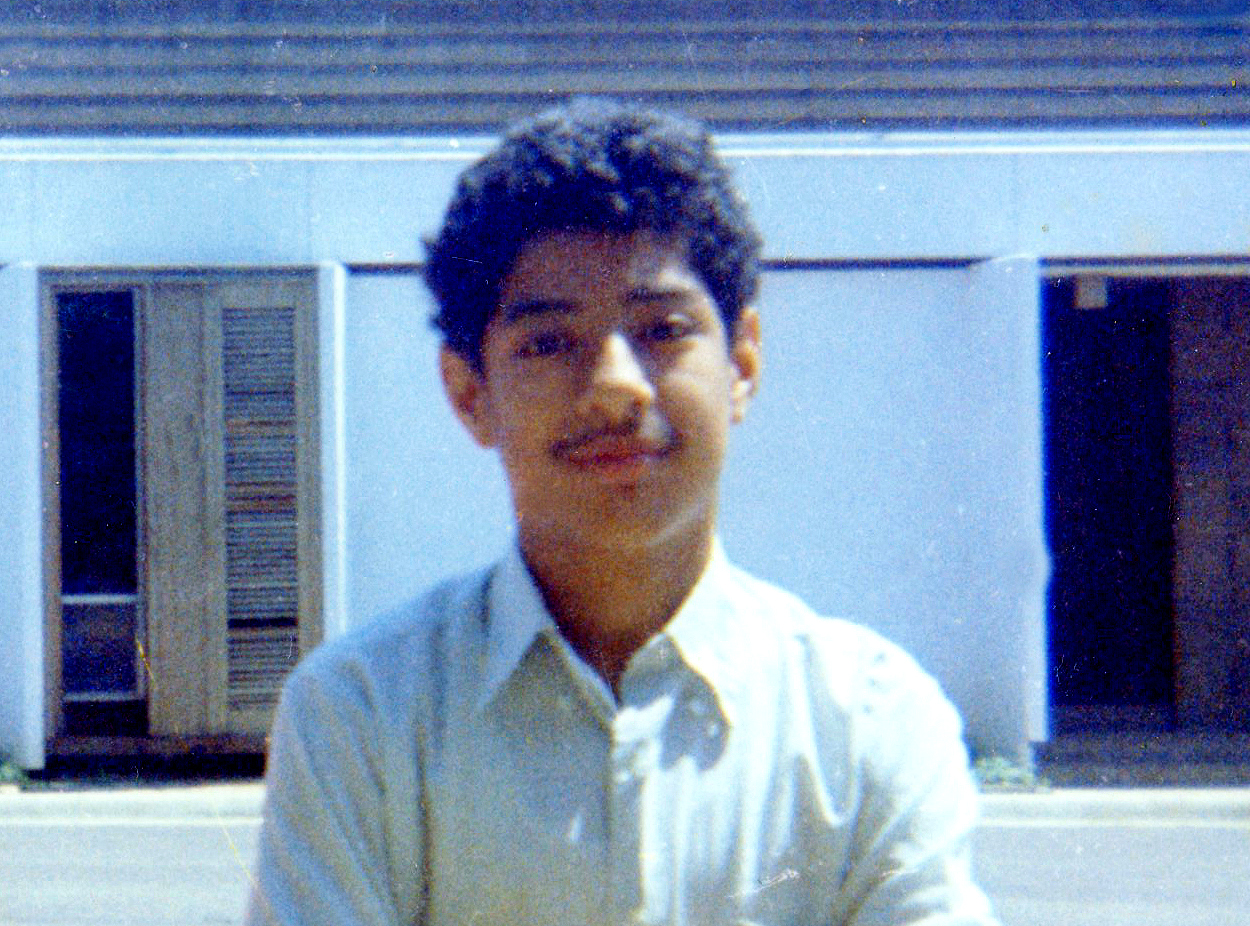SMU Human Rights names first scholar to honor slain boy
Activist and student Karly Zrake is first recipient of SMU's Santos Rodriguez Memorial Scholarship.

DALLAS (SMU) – Sophomore human rights and anthropology major Karly Zrake, active in community service since childhood, is SMU’s first recipient of the Santos Rodriguez Memorial Scholarship in honor of a 12-year-old whose 1973 shooting death by a Dallas police officer briefly imprisoned for the crime remains one of the nation’s most troubling civil rights incidents.
 Bessie Rodriguez (l.) and Karly Zrake |
The endowed scholarship, funded by Dallas’ Latino Center for Leadership Development in partnership with the Embrey Human Rights Program, will help Zrake and future students earn an undergraduate degree in human rights at SMU. And as they celebrate the award to Zrake, the Embrey program also is helping Santos’ mother, Bessie Rodriguez, attend a Dia de los Muertos (Day of the Dead) tribute to her son in Seattle on Monday, Nov. 2.
“Karly’s passion for human rights will help drive positive change in our society, which is the goal of this scholarship – to educate people while honoring the memory of Santos,” says Dallas businessman and SMU alumnus Jorge Baldor ’93, who launched the Latino CLD in March with Miguel Solis, Dallas ISD school board vice president.
“As the scholarship’s first recipient, Karly will be an ambassador for human rights education at SMU, which is one of only seven universities in the country to offer such a program,” says Bradley Klein, assistant director of the Embrey Human Rights Program in Dedman College of Humanities and Sciences. “She’ll have many opportunities to create dialogue on racial, economic, gender and cultural differences.”
Since joining SMU in 2014, Zrake has been a Dedman Scholar, maintaining a 4.0 grade point average while working part-time for the Embrey Human Rights Program, assisting Roberto Corona with Latino community outreach initiatives and helping coordinate the program’s first 10-day study trip in June focused on past and present human rights struggles of Native Americans.
Zrake plans “to enlighten others about Santos’ story, especially those in my generation who may not know about the tragedy,” she says. “My hope is for his name to live on and be associated with change and justice.”
SANTOS’ DEATH
Santos RodriguezSantos and his 13-year-old brother, David, were taken from their Dallas home by police on July 24, 1973, handcuffed, and put in a police car. In an effort to elicit information on a recent burglary of less than $10 from a soft-drink machine, one of the officers in the car placed a revolver against Santos’ head and killed him in a forced game of Russian roulette. Physical evidence discovered at the burglary site supported the brothers’ contention that they were innocent.
The incident sparked national public outcry and led to the only race riot in Dallas history. Officer Darrell Cain was sentenced to five years in prison, but released after half that time. In 2013 – 40 years after the incident – Dallas Mayor Mike Rawlings issued an official apology on behalf of the city of Dallas to the Rodriguez family.
ABOUT THE SCHOLARSHIP
To create the Santos Rodriguez Memorial Scholarship, the Latino CLD pledged $100,000 to be used in a 2:1 challenge grant, with a goal of raising $300,000 by Dec. 31, 2016. Once the endowment is funded, it will offer $10,000 in annual scholarship support to a SMU human rights major.
After the scholarship was announced this spring, Dallas Mayor Mike Rawlings became the first private donor to contribute to the fund, offering a personal check of $10,000.
The scholarship is operating with the approval of the Rodriguez family. Santos’ mother, Bessie, is advising the campaign, and supports Zrake’s eagerness to work on behalf of her son’s memory.
“Karly, one of the first scholarship applicants, showed us how moved she was by Santos’ story,” says Embrey Human Rights Program Director Rick Halperin. “She showed us how compelled she is to channel her energy and creativity into shedding light on injustice and helping communities and families wounded by it. She’s a great representative of this scholarship, for the program and the family. Everyone who meets her can tell she really wants to make a difference in the world.”
Zrake has been helping others since second grade, when, inspired by her mother’s volunteer work, she started a program to help special-needs students. By eighth grade, she was working with the Music Therapy Center of California, raising money to help send special-needs students to summer camps dedicated to improving students’ social and fine motor skills. In high school she promoted anti-bullying efforts and organized student visits to a senior living facility, where one event included a prom.
“I’m immensely grateful for the financial support at SMU,” says Zrake, who was raised in a single-parent household. “It’s helped me see that if you want to dedicate your life to others, there are ways to make it happen.”
Learn More & Give
Click here to find out more about the Santos Rodriguez Memorial Scholarship campaign and learn how to contribute.
Seattle honors memory of Santos Rodriguez with public space, Day of Dead tribute Nov. 2
With financial and personal support from SMU’s Embrey Human Rights Program, Santos’ mother, Bessie Rodriguez, will be in Seattle when the nation’s only public space named for her son will honor his memory during a Dia de los Muertos (Day of the Dead) tribute Monday, Nov. 2.
Hosted by El Centro de la Raza (The Center for People of All Races), the 10 a.m. event will include a traditional altar in memory of Santos as well as a poem written and read for the occasion by Seattle’s civic poet, Claudia Castro Luna.
Five years after the boy’s 1973 death, “we named our children’s park for Santos Rodriguez not only in memory of this young victim of racism, but in defiance of the society that caused his death, and confident we’ll win in our efforts to do away with racism,” says Estela Ortega, executive director of El Centro de la Raza. The organization helps provide educational, cultural, legal and economic support to about 19,000 people annually.
Ortega’s passion for community service began as an 8-year-old working in the cotton and vegetable fields of East Texas, “where I became very conscious of race,” she told a Seattle reporter. Since then it’s been “important to be involved in and have conversations that could build a better world.”
Related Links:
- The Dallas Morning News: Mother to visit Seattle park named for her son killed by a Dallas officer in 1973. (10/25/2015)
- The Dallas Morning News: Dallas mother of Santos Rodriguez visits Seattle park named for her son. (11/02/2015)
